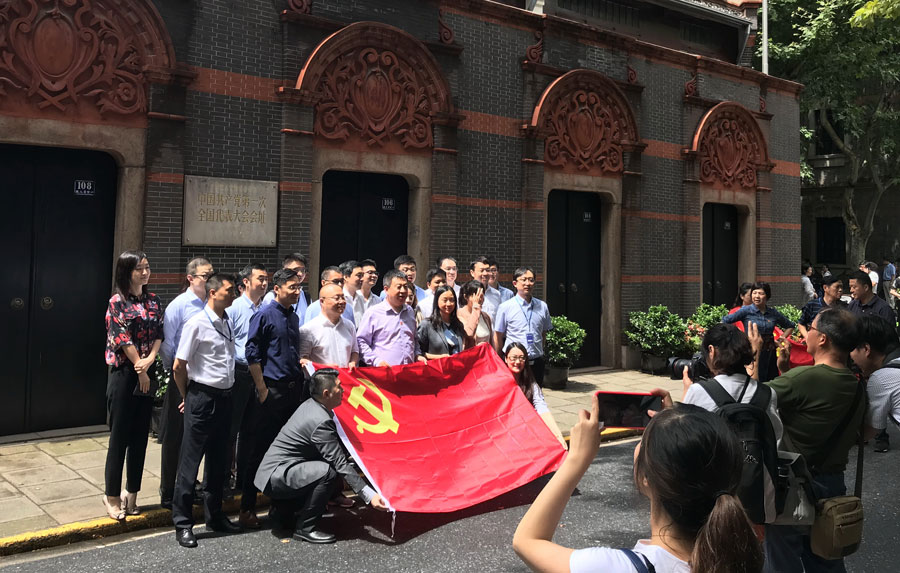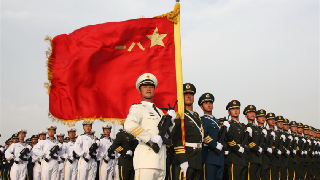
Learning the history of the Communist Party of China has become a nationwide pursuit this year, which marks the centenary of the CPC's founding, but it may be a little different at an armed police troop in Shanghai.
The officers not only learn about the Party's history but also spread it to the public through various means.
One hundred officers from the No 10 contingent affiliated to the No 4 detachment of the Shanghai armed police corps have been working as voluntary narrators at venues across the city since 1999. They include the Memorial for the Site of the First National Congress of the CPC, the Memorial for the Site of the Second CPC National Congress, and the Shanghai Revolution Museum.
"These Red venues have been functioning as vivid classrooms for these armed police officers to further understand and apply the practices in Party development to their life," said Yang Zenan, the troop's political instructor.
"Communicating the Party's history to others also helps the officers better learn from the past and boost their confidence in the Party and the country's future. It also helps build a stronger armed police troop."
Yang said that all of the armed police officers in the troop have submitted their Party membership applications.
Ma Weijia, director of the publicity and education department at the Memorial for the Site of the First National Congress of the CPC, said: "When armed police officers in uniform retell the Party history, it gives people a solemn sense and is very convincing.
"The narration level of these soldiers, a Red name card for the memorial, is comparable with some professional commentators. They have inspired more people to take the initiative to learn and spread the Party's history."
Xu Zijian, a junior armed police officer, said he tailors the content of his narration for different audiences. He said that when they are university students, he encourages discussions with them and invites individuals to share feelings and knowledge. When they are government workers, he usually raises questions to help them deepen their understanding of the Party's history.
"When narrating for primary school students, I often add some interesting stories related to the exhibits to make the narration more vivid and memorable," he said.
Experts were invited to guide the troop's own learning and the officers each learned thoroughly so that they can reply to questions raised by audience members.
A short video program of the officers talking about Party history was launched online last summer and altogether 100 episodes had been uploaded online by earlier this month. It was meant as a gift to the Party on the centenary of its founding, officers said.
Yang said each episode features an officer introducing a venue in the city –including those that are famous and little-known ones – or telling a short story from the Party's history.
The program has attracted more than 300 million views and has been forwarded online more than 1 million times. The vivid learning materials have also been used by more than 70 communities, enterprises and schools to help people learn the Party's history well.
?











